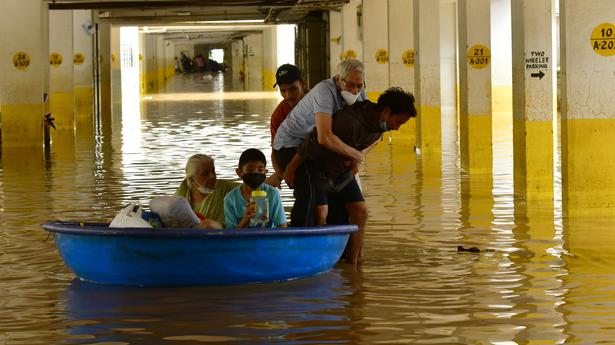"Phenomenal Heat" And Other Climate Mysteries Are Puzzling Scientists

Heatwaves -- and particularly the tendency of current models to underestimate the intensity of these bursts of deadly, searing temperature.
Paris: What worries one of the world's leading climate scientists the most?
Heatwaves -- and particularly the tendency of current models to underestimate the intensity of these bursts of deadly, searing temperature.
This is one of the "major mysteries" science still has to unravel, climatologist Robert Vautard told AFP, even as researchers can pinpoint with increasing accuracy exactly how human fossil fuel pollution is warming the planet and altering the climate.
"Today we have better climate projection models, and longer observations with a much clearer signal of climate change," said Vautard, one of the authors of an upcoming assessment by the United Nations' panel of climate experts.
"It was already clear, but it is even clearer and more indisputable today."
The assessment, the first part of a trio of reports from the Intergovernmental Panel on Climate Change (IPCC), will be released on August 9 at the end of meetings starting Monday.
It focuses on the science underpinning our understanding of things like temperature increases, rising ocean levels, and extreme weather events.
This has progressed considerably since the last assessment in 2014, but so has climate change itself, with effects being felt ever more forcefully across the planet.
'Phenomenal' heat
Scientists now have a greater understanding of the mechanisms behind "extreme phenomena, which now occur almost every week around the world", said Vautard, adding that this helps better quantify how these events will play out in the future.
In almost real-time, researchers can pinpoint the role of climate change in a given disaster, something they were unable to do at all until very recently.
Now, so-called "attribution" science means we can say how probable an extreme weather event would have been had the climate not been changing at all.
For example, within days of the extraordinary "heat dome" that scorched the western United States and Canada at the end of June, scientists from the World Weather Attribution calculated that the heatwave would have been "almost impossible" without warming.
Despite these advances, Vautard said, "major mysteries remain".
Scientists are still unsure what part clouds play "in the energy balance of the planet" and their influence on the climate's sensitivity to greenhouse gases, he said.
But it is "phenomenal temperatures", like those recorded in June in Canada or in Europe in 2019, that preoccupy the climatologist.
"What worries me the most are the heat waves" and the "thousands of deaths" they cause, said Vautard, who is director of France's Pierre-Simon Laplace Institute, climate research, and teaching center.
With rainfall, scientists have a physical law that says water vapor increases by seven percent for every degree of warming, he said, with intense precipitation increasing by about the same amount.
But even now he said the "resolution of the models is not sufficient" for very localized phenomena.
The next generation of models should be able to add even more detail, going down to an area of about a kilometer.
That would give researchers a much better understanding of "small scale" events, like tornadoes, hail, or storm systems that bring intense rain like those seen in parts of the Mediterranean in 2020.



 sujathadh
sujathadh 




































